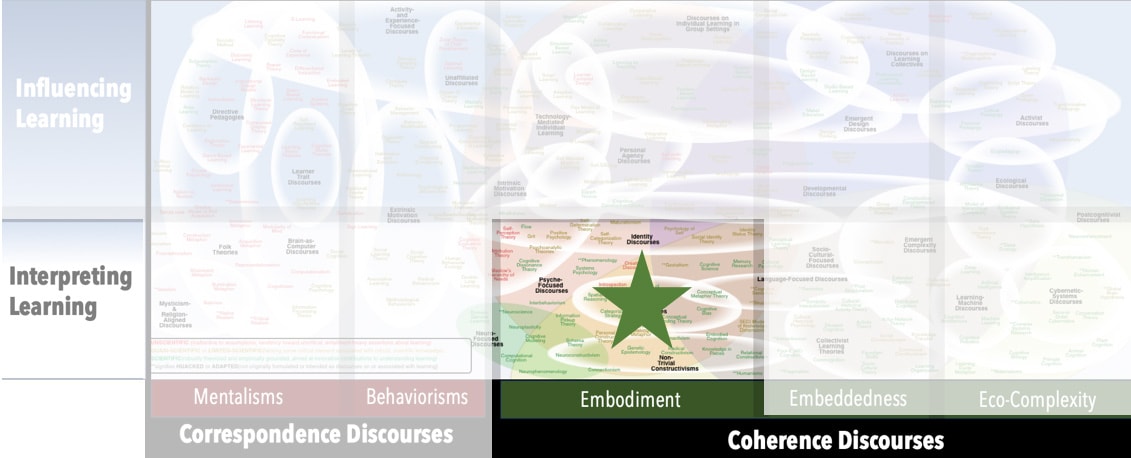AKA
Computational Cognitive Science
Computational Psychology
Focus
Complex dynamic modeling of human cognitionPrincipal Metaphors
Because Computational Cognition is more focused on computer-based modeling of cognition than on metaphor-based descriptions, we are unable to discern a consistent cluster of terms. That said, proponents tend to take care that their verbal descriptions are consistent with other Coherence Discourses:- Knowledge is … ecosystem of interdependent forms
- Knowing is … doing, being
- Learner is … an evolving coherence (individual)
- Learning is … adapting, becoming
- Teaching is … coupled engagement
Originated
1970sSynopsis
Computational Cognition is an approach to researching learning that focuses on the development of computational models fitted to empirical evidence and attentive to human experience. Critically, Computational Cognition does not assert or assume that the mind is an information-processing system; rather, the orienting premise is that technologies of computation afford useful means to study human cognition (including sub-phenomena, such as intention, motivation, emotion, and perception) by using complex, dynamic models. Associated Discourses include:- Bayesian Model (Bayesian Cognitive Science) (David Marr, 1970s) – an approach to modeling brain activity that is oriented by the premise that the brain is constantly operating in a space of uncertainty as it makes predictions and decisions. As a proxy for the brain’s actual coping mechanism, the model relies on a mathematical formula (developed by Thomas Bayes in the 1700s) for calculating probabilities of events as new information becomes available.
- Computation Theory (Theory of Computation) – a branch of computer science that focuses on the efficient use of algorithms to solve problems
Commentary
Likely owing to the popularity of the brain-as-computer metaphor, Computational Cognition in commonly interpreted as an information-processing theory or learning rather than a complex modeling strategy to study learning. (This problem is amplified by the similarity in name to Computationalism, which is an information-processing theory.) For related reason, Computational Cognition is also sometimes conflated with Artificial Intelligence and Machine Learning.Authors and/or Prominent Influences
David Marr; George Armitage MillerStatus as a Theory of Learning
Computational Cognition is intended to afford insight into learning, but it is less a theory of learning than an approach to studying learning.Status as a Theory of Teaching
Computational Cognition is not a theory of teaching.Status as a Scientific Theory
Computational Cognition is a scientific approach to studying cognition.Subdiscourses:
- Bayesian Model (Bayesian Cognitive Science)
- Computation Theory (Theory of Computation)
Map Location

Please cite this article as:
Davis, B., & Francis, K. (2024). “Computational Cognition” in Discourses on Learning in Education. https://learningdiscourses.com.
⇦ Back to Map
⇦ Back to List
